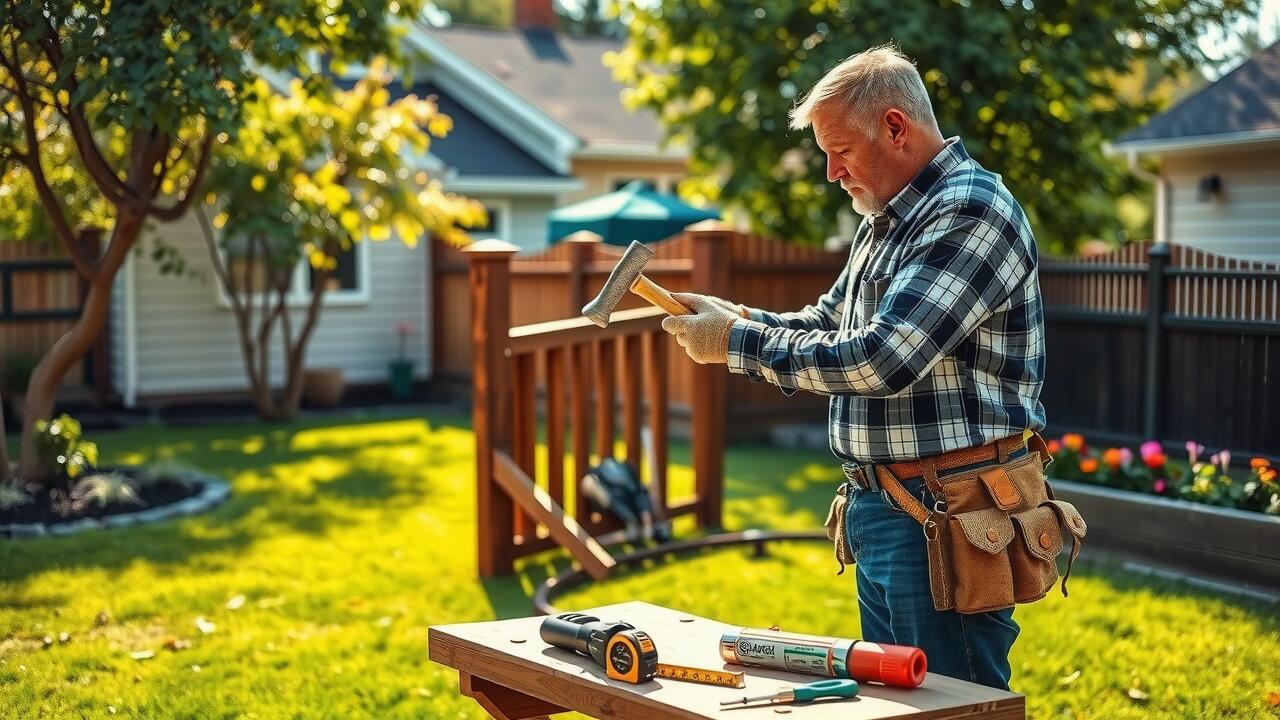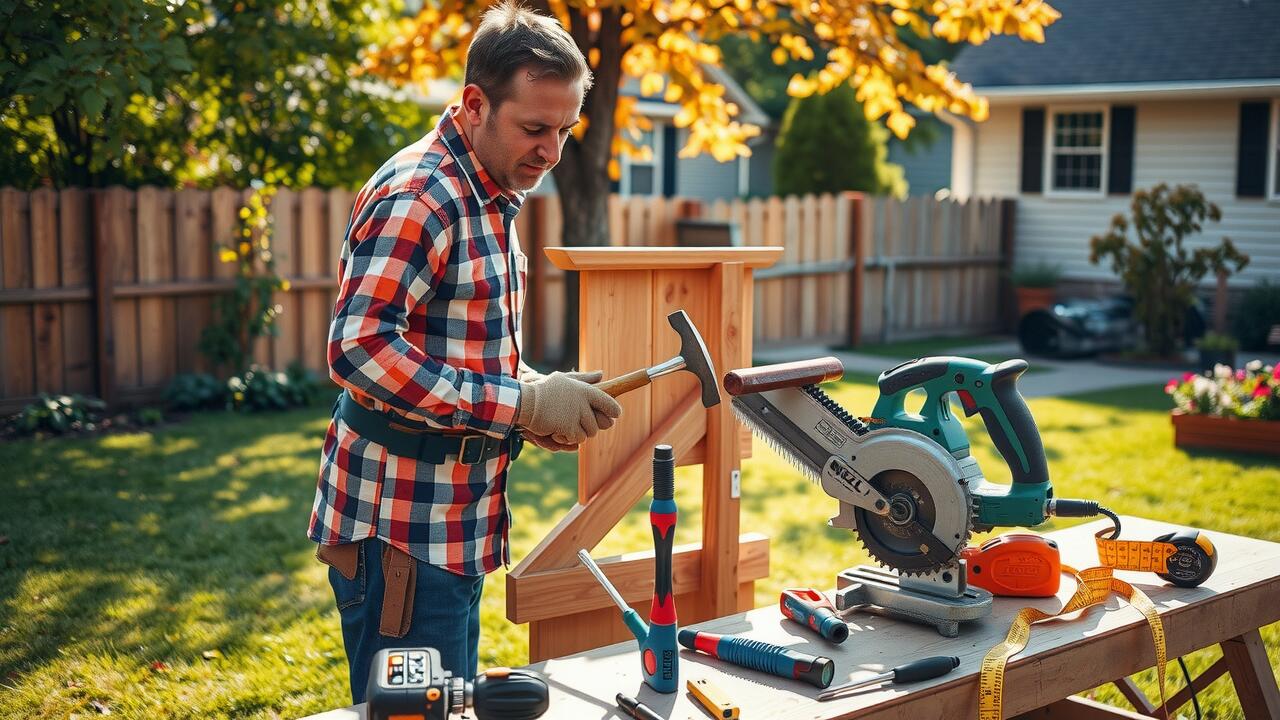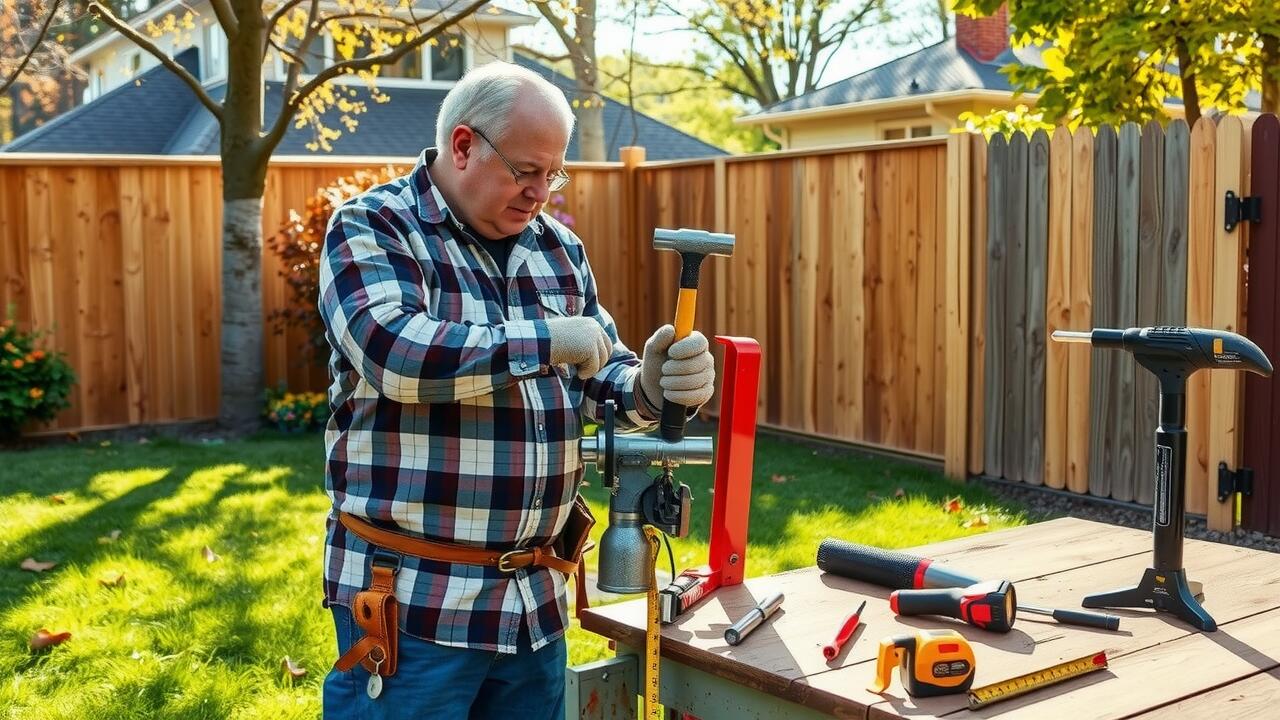
Table Of Contents
Maintenance Tips for Fences
Regular maintenance is essential to prolong the lifespan of your fence. Inspecting for signs of wear such as rust, rot, or damage can help identify areas that require immediate attention. Cleaning your fence periodically using a soft brush or pressure washer can remove dirt, mold, and mildew. Applying a protective stain or sealant every few years helps shield the wood or metal from the elements, ensuring it remains sturdy and visually appealing.
Fence repair often becomes necessary due to weather-related wear and tear. Addressing issues like loose boards, broken posts, or rusted hardware promptly can prevent more extensive damage over time. It is essential to have the right tools and materials on hand for quick repairs. Regularly checking the ground around the fence for shifting soil or vegetation growth also helps maintain its stability and overall condition.
Keeping Your Fence in Top Condition
Regular upkeep plays a crucial role in maintaining the lifespan and appearance of your fence. Inspecting for damage caused by weather, pests, or wear and tear should be a routine task. Simple actions like cleaning dirt and debris from any surface can prevent premature degradation. Noticing signs of wear early on can make fence repair more manageable and cost-effective.
Sealing or staining wooden fences can protect them from moisture and UV damage. Ensuring the gates operate smoothly requires checking the hinges and latches consistently. In metal fences, rust may develop over time, necessitating prompt fence repair to avoid extensive damage. Keeping an eye on all these factors will ensure your fence remains a functional and aesthetic asset to your property.
The Benefits of Hiring a Professional
Hiring a professional for your fencing needs can provide significant advantages. Experts bring a wealth of experience and specialized knowledge to the table. They understand the nuances of different materials and construction techniques, ensuring that your fence is built or repaired according to industry standards. This level of expertise can save you from potential mistakes that might arise from an amateur installation.
Another important benefit of hiring a professional is the efficiency they bring to the project. Professionals often have the right tools and equipment, making fence repair less time-consuming. This ability to work quickly and effectively means that your property remains secure during the process. Additionally, hiring an expert can lead to better warranties and guarantees on the work performed, giving you peace of mind in the long run.
Time Savings and Quality Assurance
Hiring a professional for fence installation and maintenance significantly reduces the time spent on these tasks. Professionals bring experience and efficiency to the job. They can quickly identify issues that may not be apparent to an untrained eye, ensuring the work is done right the first time. This expertise helps avoid unnecessary delays associated with trial and error typical in DIY projects. Fence repair done by a professional not only conserves time but also mitigates frustrations often faced by homeowners.
Quality assurance is another critical advantage of enlisting professional help. Professionals utilize high-quality materials and advanced techniques that enhance durability and aesthetic appeal. Their knowledge of local building codes and standards ensures compliance, which can save homeowners from future legal headaches or fines. A well-constructed fence provides peace of mind, knowing it will withstand the elements over time. Professional fence repair helps maintain the integrity of the structure and prolongs its lifespan.
DIY Fencing
DIY fencing can be a rewarding project for those with the right skills and resources. It allows homeowners to customize their outdoor space while saving on labor costs. However, successful completion often requires careful planning and preparation. From choosing materials to measuring the area accurately, attention to detail is essential. It’s important to assess whether you have the necessary tools and knowledge before diving into the project.
Fence repair is another consideration if you opt for a DIY approach. Maintaining a fence can be just as crucial as building one. Identifying issues like rotting wood or damaged posts early on can prevent more extensive problems down the line. Learning about repair techniques can enhance your overall fencing skills and extend the lifespan of your installation.
Evaluating Your Skill Level and Resources
When considering a DIY fencing project, it’s crucial to assess your skill level in relation to the tasks at hand. Installing a fence involves precise measurements, post digging, and various tools. If you have prior experience with home improvement or construction projects, you may feel confident tackling this job. However, if you lack experience or are unfamiliar with the necessary techniques, the process could become overwhelming and lead to potential mistakes that might require professional fence repair later on.
Additionally, taking stock of your available resources is essential. This includes both tools and materials. Some projects may require heavy machinery or specific equipment that you may not own. Renting tools can add costs, while purchasing improper materials could lead to further complications. A thorough evaluation will help you determine whether your current resources align with the demands of the project. If you find that the requirements exceed your capabilities or budget, enlisting the help of professionals might be the more sensible choice.
FAQS
What do you call someone who puts up fences?
Someone who puts up fences is commonly referred to as a “fence installer” or “fence contractor.”
What skills should a fence installer have?
A fence installer should have skills in measuring, cutting, and assembling materials, as well as knowledge of local building codes and regulations.
Can I install a fence myself, or should I hire a professional?
Whether to install a fence yourself or hire a professional depends on your skill level, available resources, and the complexity of the project.
What are the benefits of hiring a professional fence installer?
Hiring a professional can save you time, ensure quality workmanship, and provide peace of mind regarding the installation process.
How can I maintain my fence once it’s installed?
Regular maintenance tips include cleaning the fence, checking for damage, applying protective coatings, and ensuring proper drainage to prevent wood rot.

